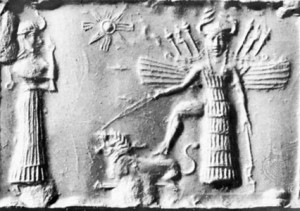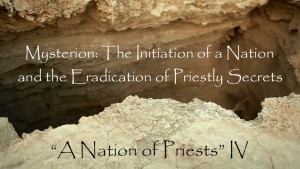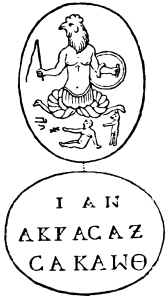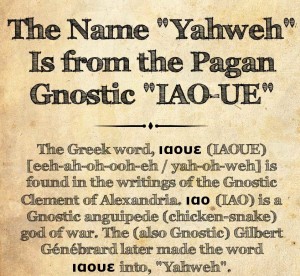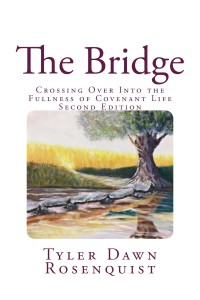 A plea for civility and clear heads – it seems that no matter how clearly or politely or lovingly I present this material, emotions run high. People get defensive, they put words in my mouth and they misrepresent not only what I am saying – but also my reasons for saying it as they freely speculate on my motivations. I am a really straightforward person and my motivations are to correct MY error. I am not insulting anyone, or disparaging anyone’s character – I am setting the record straight about what I was teaching and about what happened when I actually dug deep into history and archaeology. This is not a subject that should drive people apart, or result in slander or the undermining of someone’s character. There should be no untouchable subjects if we are to truly call ourselves Bereans and if we are going to continually strive to represent the Gospel honestly – not only when preaching the Gospel, but in everything else we teach and do. If we cannot love one another and deal with each other with integrity, then we have a problem greater than Church holidays.
A plea for civility and clear heads – it seems that no matter how clearly or politely or lovingly I present this material, emotions run high. People get defensive, they put words in my mouth and they misrepresent not only what I am saying – but also my reasons for saying it as they freely speculate on my motivations. I am a really straightforward person and my motivations are to correct MY error. I am not insulting anyone, or disparaging anyone’s character – I am setting the record straight about what I was teaching and about what happened when I actually dug deep into history and archaeology. This is not a subject that should drive people apart, or result in slander or the undermining of someone’s character. There should be no untouchable subjects if we are to truly call ourselves Bereans and if we are going to continually strive to represent the Gospel honestly – not only when preaching the Gospel, but in everything else we teach and do. If we cannot love one another and deal with each other with integrity, then we have a problem greater than Church holidays.
********************************
I rewrote The Bridge, as you might know, because of one paragraph in one chapter and then one thing led to another and all of a sudden it was 20,000 words longer. I had written in a few very popular urban legends that I found were without merit concerning the advent (no pun intended) of Christmas and Easter. I had assumed that the people who taught me had researched it, which was ridiculous because I didn’t research it and why should I expect from them what I hadn’t done myself? We all placed our trust in the people who went before us – a common human thing to do. After proving through massive archaeological evidence that there never was an Ishtar Sunday and that her cult never practiced human sacrifice (really, almost no one did in antiquity, come to find out and Rome formally outlawed it in 97 BCE), and that she was never associated with eggs or rabbits – I was forced to re-examine everything. So, after spending massive hours and a lot of money on learning about actual ANE paganism, I had to remove the book from the market and get rid of the urban legends that largely originated during the European Catholic-Protestant wars. I have to be honest – I couldn’t sleep because it had me so upset. First, I will give you an excerpt from the chapter about Sabbath, then one from the section on Sukkot and following those is the chapter that was responsible for the rewrite in the first place. I apologize for not doing my homework – for not being a true Berean. I apologize for doing what was easy instead of what was right, and I am really sorry for not just sticking with promoting the Feasts and the Sabbath – because they are enough.
************
(Sidebar: something happened in the fourth century that was incredibly tragic. Between the Councils of Nicaea in 325 CE and Constantinople in 381 CE, Rome did what Rome always did best – they formally legislated, and clearly controlled through that legislation, what it meant to be a Christian and what it meant to be a Jew because for a long time everyone was meeting in the synagogues on Sabbath and Christianity was considered a valid expression of Judaism. Rome defined both religions – and we still live with under those definitions without even knowing why. You could not keep any of the Torah and remain a Christian, and you could no longer accept Yeshua as Messiah and remain a Jew. Church Fathers Jerome and Augustine both wrote during this time, voicing their approval for the marginalizing of all those who were still ‘in between’ – living like Jews while worshiping Yeshua.)[1]
[1] Daniel Boyarin, The Jewish Gospels: The Story of the Jewish Christ is an excellent treatise on this subject
*****************
Do you want to know why Christmas was first celebrated? I know the rumors but let me give it to you straight – I want you to imagine the Believers in Yeshua, separated from their Jewish brothers by an increasing legal and emotional abyss, wanting to celebrate and honor not living and dead Roman Emperors (as Roman law required) but instead their Messiah in a way that was perfectly culturally acceptable in the Roman Empire. Instead of honoring Imperial Cult birthdays (Augustus was known as the Savior of the World in the Roman Empire) they wanted to honor Yeshua, the true Savior of the World. So they, without any knowledge of the importance of the Feasts and having lost all Hebraic understanding of what they were reading, really miscalculated. They came up with December 25th based solely upon the theory that Yeshua was conceived and died on the same day (Passover), which was a shame because God had already instituted a Feast that recognized the birth of Yeshua – the Feast of Sukkot (some people believe He was born on Passover). They created an illegitimate holiday because they had been stripped of the real celebration through Roman law. As with so many things, they had great intentions, but it was tragically unnecessary.
***********
Remember I told you about Deuteronomy 12:32, forbidding us to add and subtract from God’s Laws like the Pharisees did? Well, we’ve done it too, or at least we’ve inherited what others did and lived by it much like the Orthodox Jews of today inherited many of the same laws of the Pharisees. I look at what they do, not with contempt but with the realization that they inherited things just the same as we did, and they haven’t ditched their traditions any more than Christians have.
In fact, right now I want to make something very clear. I do not have anything but positive feelings about Jews and Christians, and I have to give credit where credit is due. Observant Jews care more deeply about obeying God than anyone on earth, there is a zealousness that I deeply admire and it touches my heart. Their dedication to family is simply amazing, and their passion for the Scriptures is incredible. Everything I have shared with you about the Feasts was possible only because they never abandoned God.
Do you want to know why the Jews survived the Black Death that devastated Christians throughout the world? Christians were not washing their hands in those days (or bathing), but the Jews were. I mean that seriously. (The American Indians were very upset about it when colonists started to arrive from Europe. They were clean people and the Europeans were not.) It became so evident that Jews were not dying of plague that people began accusing the Jews of witchcraft – of actually starting the plague through sorcery! It was their laws, however, far in excess of what was written that we follow as good hygiene practices today (I have to add, however, that this was not done for hygiene purposes but for holiness). So it is a good idea to wash hands, but as far as anyone calling ritual hand washing an actual commandment of God, that is not Biblical. For the record, they were not simply washing their hands, but they also recited a prayer as they did it, and had to do it according to a specific ritual which is also practiced today. Here is the prayer:
“Blessed art Thou, O Lord our God, King of the universe, who has sanctified us with Thy commandments and has commanded us concerning the washing of the hands.”
Now there is no commandment to do this in Scripture, so this can only be justified as a commandment of the Oral Torah. We see something very similar with the prayer spoken while lighting the Sabbath candles. Is lighting candles before the Sabbath terrible? Of course not, but it also isn’t a Biblical commandment.
How about Christianity? There are more people being cared for around the world because of everyday Christians than I could write about in a thousand books – orphanages built and maintained, sex slaves rescued from the streets, hospitals built, abused women and children sheltered, drug addicts counseled. The list of good works just goes on and on – the weightier matters of Torah, all done in the name of Jesus. And right now as I am writing this, I weep for my brothers and sisters and their children in the Middle East and Africa who are daily being slaughtered by ISIS for refusing to deny our Master Yeshua, whether they call Him Jesus, Isa, Yesu, or any other variation.
Each faith sadly also has a legacy of adding to the commandments of God their own traditions and judging people based on them. Each faith added and subtracted as they saw fit.
Christmas and Easter are on the top of that list for Christians. The verses preceding Deut 12:32 are very sobering verses indeed. And I ask you to consider them carefully, because Christmas is a tradition, not a commandment of God, and Easter is a tradition, not a commandment of God – just like ritual hand washing. We should never judge, nor hate another person based on their nonconformance to our traditions because if we do, we will do violence to one another (even if it is only in our hearts) as some of the Pharisee leaders plotted to do violence to Yeshua because He challenged the traditions that they enforced as authoritative laws.
Deut 12:28-32 Observe and hear all these words which I command thee, that it may go well with thee, and with thy children after thee forever, when thou doest that which is good and right in the sight of the Lord thy God.
When the Lord thy God shall cut off the nations from before thee, whither thou goest to possess them, and thou succeedest them, and dwellest in their land;
Take heed to thyself that thou be not snared by following them, after that they be destroyed from before thee; and that thou enquire not after their gods, saying, How did these nations serve their gods? even so will I do likewise.
Thou shalt not do so unto the Lord thy God: for every abomination to the Lord, which he hateth, have they done unto their gods; for even their sons and their daughters they have burnt in the fire to their gods.
What thing soever I command you, observe to do it: thou shalt not add thereto, nor diminish from it.
First verse, He reiterates that His commandments are forever. Then He warned the Israelites not to find out about anything related to the heathen worship of the nations they were going to destroy and do it in order to worship Him. He called every single unique thing they did for their gods an abomination. It’s His absolute harshest word for the things He hates. Then He says, in a nutshell, that His Laws are good as they are and have no need to be added to or subtracted from.
(Note: everything legitimate about the worship of our King was also practiced by heathens and so we cannot say that everything they did for their gods was inherently evil – many of their practices boiled down to cultural expressions of honor like the anointing of the feet of a king or god with perfumed oil. What we do not dare do is take something directly from pagan practices that is not in the Scriptures and ‘reclaim’ it for God.)
Passover is enough
Unleavened Bread is enough
First Fruits is enough
Shavuot is enough
Yom Teruah is enough
Sukkot is enough
Shemini Atzeret is enough.
Easter replaced the Spring Feasts and so we lost sight of God’s prophetic plan and calendar, leaving us blind and unable to explain or even truly understand what Yeshua did and fulfilled. It left us unable to explain to our Jewish brothers and sisters why Yeshua is not an idolater and a blasphemer, but instead their Messiah.
Christmas replaced the Fall Feasts, and so we became blind there as well to what He will do and fulfill. The end will largely come upon the Church like a thief because we have not been aware of the times and seasons.
I am not going to rehash what you can find on the internet, some of which is true but so much of which is unsubstantiated and falsified that it takes too much precious time for the average person to sort out the lies from the facts. We have inherited holidays that are full of European traditions, some of questionable origin. The world celebrates these holidays in the same manner as Christians do, and each year more and more Bible believing Christians are giving them up. I can’t remember the last time I saw the world trying to celebrate any of the Biblical Feasts, which is a sobering reality check – the world never wants to participate in anything that is actually holy.
To me, knowing the history of the fourth century CE – that Rome forcibly legislated the removal of Christians out of the synagogues and Torah keepers out of the assemblies of Messiah – Christians celebrating Christmas and Easter seem very much like children celebrating the consequences of having a broken home. Without the Christians, the Jews lost their Messiah and without the Jews, the Christians lost their inheritance. It’s like a child celebrating the absence of a parent who wasn’t even a bad parent. Christmas and Easter happened because of a broken home, and that grieves me – it doesn’t make me want to celebrate. At one point all believers in Yeshua were called Nazarene Jews, for hundreds of years – Rome robbed us of a stable home life.
I understand not wanting to abandon those holidays because of the memories associated with them and because of the fear of family disapproval. Yes, it will happen, people won’t understand – and they will judge you for not keeping their traditions, but that is what they are – traditions. When we judge people by traditions and value the traditions more than we value the truth, we become like the people who conspired to kill Yeshua.
Traditions blind. Whereas people do not get angry if you break a commandment, they will get angry if you question their tradition because to break a tradition is to challenge someone’s life choices, while to break a commandment is to challenge God. People will take it personally, and this is why we have to choose whom we will serve. I speak from heartache and experience on this.
No one is telling you to ditch your memories or to feel guilty about having enjoyed precious hours as a family, just to put those memories into proper perspective. It was always difficult for everyone coming into Covenant to leave some aspects of their cultures behind in order to follow YHVH exclusively, in fact it was so difficult that when Moses delayed in coming back down from the mountain, the people demanded that Aaron, Moses’ own brother, make them a golden calf that they could worship – as they had undoubtedly learned in Egypt. And this is what Aaron did –
Ex 32:4-5 And he received them at their hand, and fashioned it with a graving tool, after he had made it a molten calf: and they said, These be thy gods, O Israel, which brought thee up out of the land of Egypt.
And when Aaron saw it, he built an altar before it; and Aaron made proclamation, and said, Tomorrow is a feast to the Lord.
It wasn’t just that Aaron made something attached to that abominable Egyptian heathenism, but He set up a feast on a day never commanded and said it was too, in the Hebrew, YHVH. YHVH was so angry that He threatened to kill them all, saying that they had corrupted themselves. This was a very serious betrayal, an act of National treason. considering what YHVH had done for them.
But isn’t that what Christmas is? When we detach ourselves from the emotional aspects of the holiday, from our fond memories, didn’t our forefathers simply announce their own ‘feast to YHVH’ while ignoring His Feasts – and all because Moses, or in this case the Laws of God, were no longer there for them?
I can’t force you to give up those holidays. I can’t even force you to want to give them up. I do ask you very bluntly, what does YHVH deserve from us in terms of loyalty? Is it to keep His Feasts His way, or to do things our way and expect Him to approve? Do we truly honor Him when we do what we want when we want? The Scriptures, from front to back, say no.
